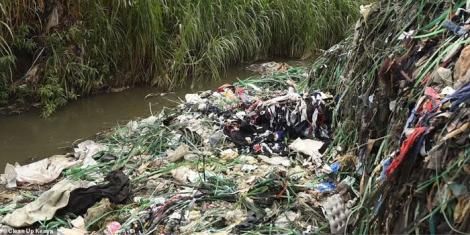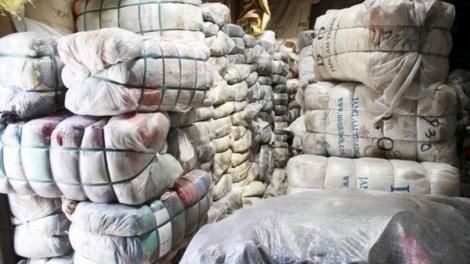One of the main businesses that Kenyans run across the nation to make money is the mitumba market for used garments.
Kenyans prefer importing at-a-discount designer clothing and footwear.
For the Changing Markets Foundation (CMF), an investigation by Clean Up Kenya and Wildlight found that more than one-third of the items supplied to Kenya were discarded.
The 2023 research claims that the goods delivered to Kenya are composed of subpar materials like polyester and nylon, which cannot be repaired or reused.
The established personalities in the fashion business are accused by the investigators of dumping cheap, frequently overproduced goods in developing nations.
The report also stated that every year, roughly 36 million mitumba goods are shipped from the UK to Kenya.
The report also referred to the high figures as a flaw in a 2019 legal agreement that barred richer countries from sending non-recyclable plastic debris to less developed ones.
“Countries like Kenya serve as the safety valve for rapid fashion. According to Betterman Simidi Musasia, the founder and supporter of Clean Up Kenya, “Traders buy packaged apparel blind and sensibly dump the growing percentage that turns out to be unusable.”
Given that a significant portion of low-quality clothing is discarded in water bodies, one way the clothes damage Kenyans is through water contamination.
In reality, Musasia continued, “our addiction to fast fashion is burdening impoverished nations like Kenya with contaminated soil, water, and water.”
Several clothing-filled dumps with piles as high as a four-story building were found nearby a river, according to the report.

The air is contaminated as a result of some of the objects being used as fuel to cook and even boil water, which leads to respiratory illnesses.
Additionally, the discarded clothes adds to the nation’s plastic waste problem, which lowers soil quality, lowers yields, and leads to tainted food products.
George Harding-Rolls, the campaign manager at the Changing Markets Foundation, cautioned that “what we have witnessed in Kenya and around the world will be just the beginning until the fashion industry is completely altered.”
The investigators’ final recommendation was to forbid exporters from sending second-hand clothing.




